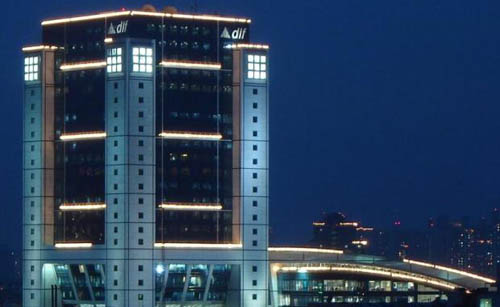 Real estate giant DLF may have to pay Rs.900 crore extra penalty if the Competition Commission of India (CCI) finds it guilty of abusing its dominant market position in three more projects in Gurgaon.
Real estate giant DLF may have to pay Rs.900 crore extra penalty if the Competition Commission of India (CCI) finds it guilty of abusing its dominant market position in three more projects in Gurgaon.
The CCI has already slapped a Rs.630-crore fine on DLF for unfair practices at its Belaire project in Gurgaon. The competition regulator is now investigating charges of market dominance and anti-competitive practices in the Park Place, Magnolias and New Town Heights projects.
Requesting anonymity an official of CCI said apart from DLF, the commission was also investigating 10 to 11 cases involving other real estate players where complaints under sections 3 and 4 of the Competition Act 2002 had been lodged. Sections 3 and 4 deal with anti-competitive agreements and abuse of dominant position, respectively.
Sources said next in CCI’s line of fire were cement companies such as Ultratech, ACC and Ambuja Cement, who might have misused dominant market positions.
“Complaints have come from buyers of residential properties in Park Place, Magnolias and New Town Heights against DLF. We will issue an order soon,” said commission officials.
The commission can charge a penalty of up to 10 per cent of three-year average turnover of a company in each case of abuse of market dominance and anti-competitive practices. DLF posted an average turnover of Rs.9,006 crore between 2009 and 2011. In Belaire, the fine was 7 per cent of the average turnover.
The CCI will also initiate “suo-motu” investigation into other real estate players, including Lavasa and DB Realty, as anti-competitive practices have become a norm in the real estate sector.
“Buyers in general are facing problems such as escalation of property price, change in build-up area and delay in getting possession. It is, therefore, appropriate to look into the general practice along with specific complaints,” said officials.
The commission, which was set up two years back, is currently investigating around 140 cases.
The commission feels a real estate regulator will “ensure the amount collected from customers is utilised for the specific project, bring transparency in information relating to work progress and end the practice of built-in hidden costs other than the initial set price”.
Analysts said in the absence of a market regulator the commission should be careful during its investigation. The commission should see to it that it does not become a tool in the hands of irate consumers. Also such rulings, if found to be lacking, can be reversed in the competent court of law.
“Since there is no competent regulator in real estate, everyone wants to regulate us—right from local police to the CCI,” said a realtor who didn’t want to be quoted.
A Real Estate Regulation Bill 2011, which will bring transparency in the sector and protect consumers from fraud, is yet to be introduced in Parliament. If the bill becomes law, all developers will have to register with the regulator and provide details of their projects before starting promotional activities.





